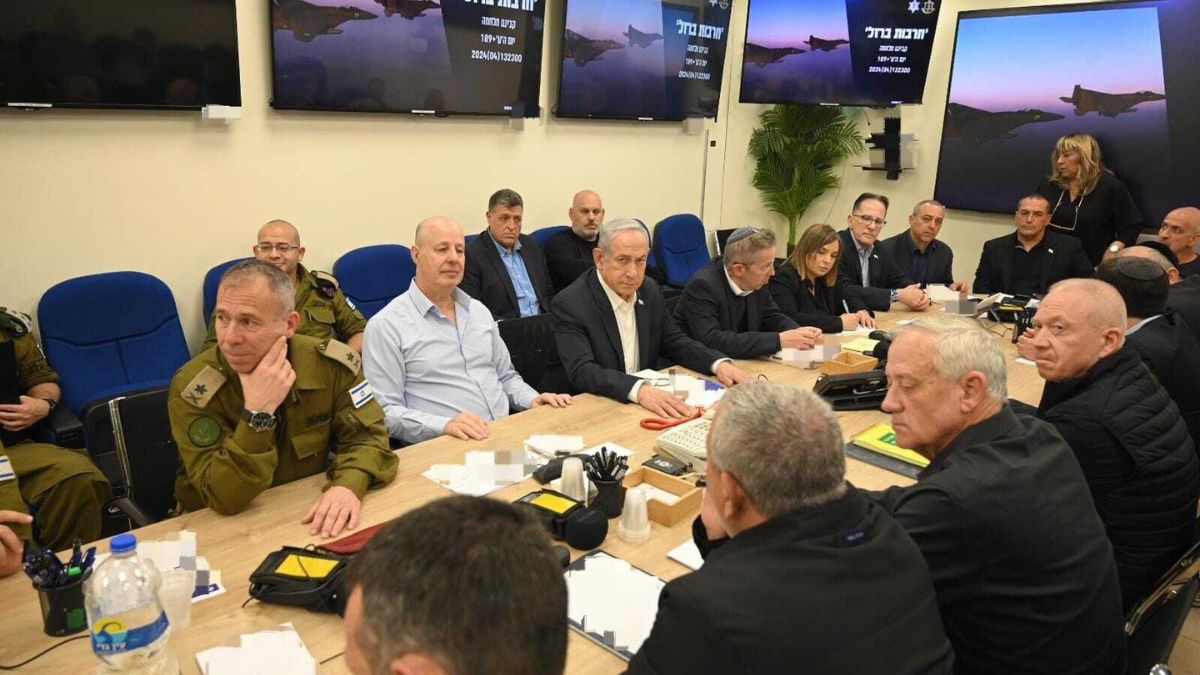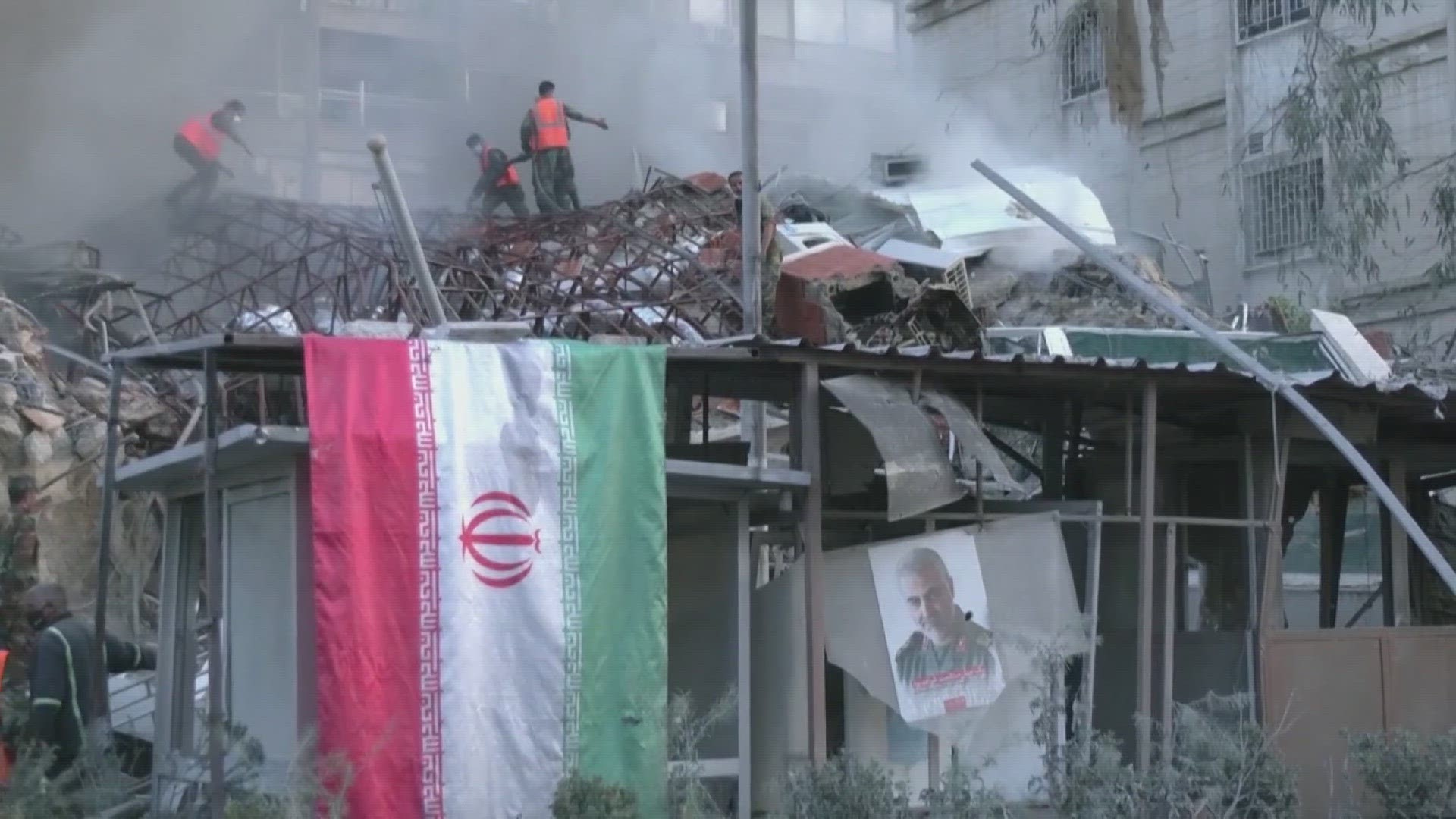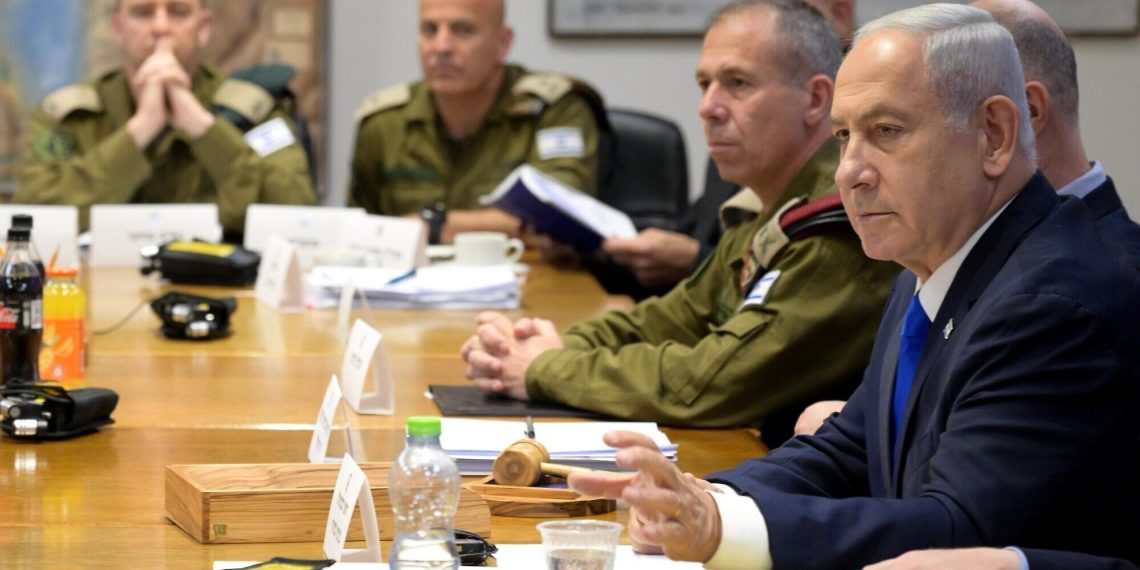Israel’s Prime Minister, Benjamin Netanyahu, convened his war cabinet for the second time in less than 24 hours to deliberate on how to respond to Iran’s unprecedented missile and drone attack over the weekend.
Military Chief of Staff Herzi Halevi affirmed Israel’s intention to retaliate without disclosing specifics.
The Iranian strike, purportedly in retaliation for an alleged Israeli airstrike on its embassy compound in Damascus on April 1, has heightened tensions in the region. While Iran signaled a desire to avoid further escalation, Israeli retaliation remains a looming concern.

The attack, while causing minimal damage and no casualties, has stoked fears of wider conflict, especially given ongoing clashes between Israel and Iran-aligned groups in Lebanon, Syria, Yemen, and Iraq.
Global leaders, including the US, EU, UK, and UN, have urged restraint to prevent the situation from spiraling out of control.
Despite international calls for calm, Israel’s response could escalate tensions further. US President Joe Biden assured Netanyahu that the US would not participate in an Israeli counter-strike, emphasizing a desire to avoid a regional conflict.

In Gaza, where tensions have been high following Israeli military operations, Iran’s actions garnered support among Palestinians, further complicating the situation.
The Group of Seven (G7) is considering coordinated measures against Iran in response to the attack. British Prime Minister Rishi Sunak affirmed G7 unity in condemning the assault, hinting at potential sanctions targeting individuals.
The attack has disrupted air travel, prompting airlines to cancel or reroute flights and Europe’s aviation regulator to advise caution in Israeli and Iranian airspace.




